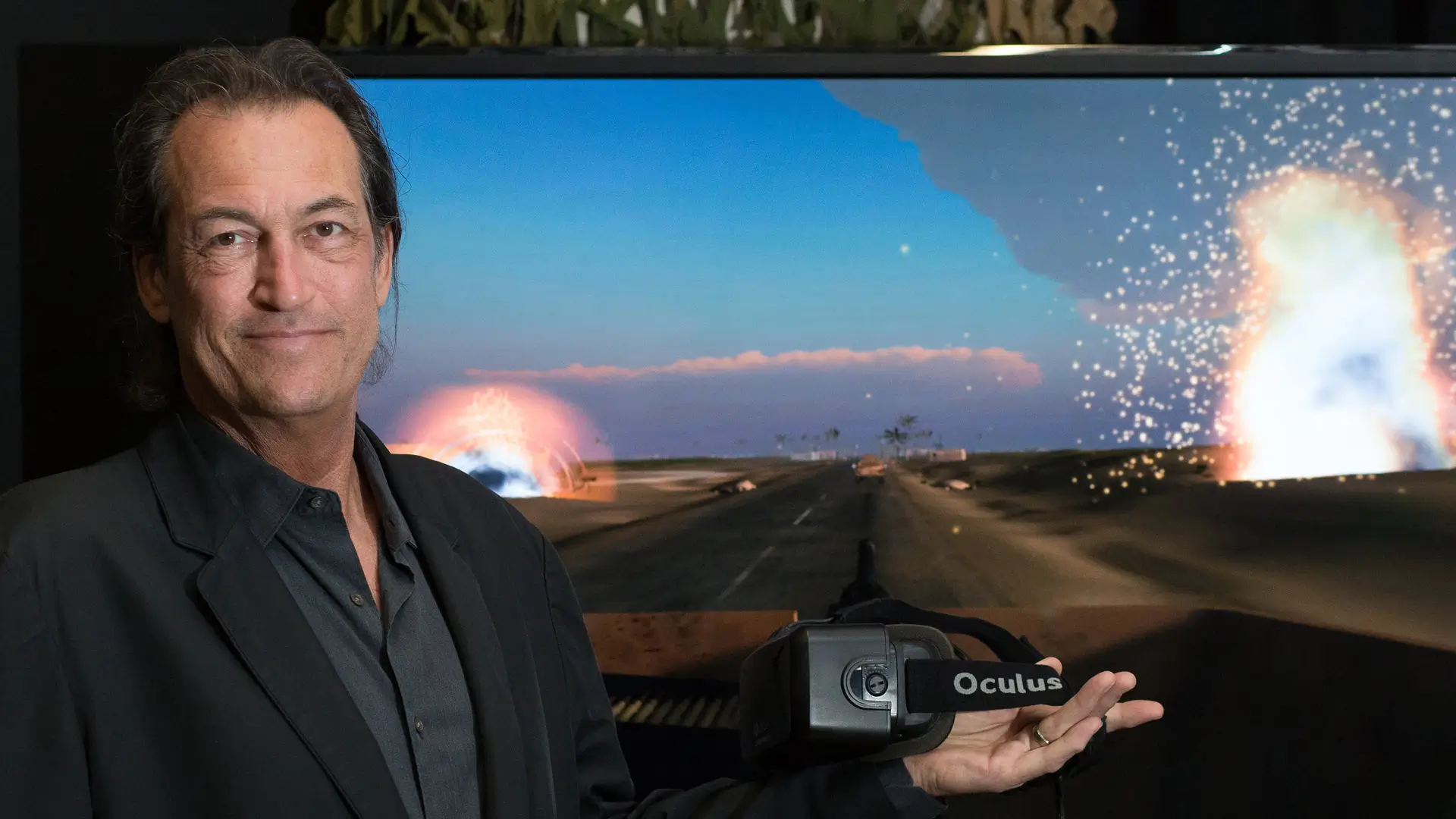As he looks back at photos, retired United States Air Force Master Sgt. Rob Cook reflects on the transformative power of his military service.
“My time in the military was special,” Cook said. “It was probably one of the best things that ever happened to me.”
However, Cook acknowledges trauma is an occupational hazard for those in the military.
“Being security forces protectors, there were some times in which I found myself in situations that caused some post-traumatic stress,” he said.
Cook’s experience is not unique. According to the U.S. Department of Veterans Affairs, about seven out of every 100 veterans will grapple with PTSD at some point in their lives. Determined to help others navigate their own traumas, Cook has embraced his role as a speaker and coach, sharing his journey and offering guidance through his company Life After Trauma.
The success stories of veterans like Cook who have overcome PTSD is the inspiration behind a ground-breaking project in PTSD treatment innovation at USC’s Institute for Creative Technologies with Dr. Skip Rizzo at the forefront.
Rizzo’s team is developing Bravemind, an interactive virtual reality-based exposure therapy tool aimed at assessing and treating PTSD.
“You’re immersed within a virtual world, experiencing scenes reminiscent of overseas environments veterans may have encountered,” Rizzo said, explaining the therapy.
Bravemind offers a unique approach by incorporating realistic sights, sounds and even physical props to enhance the immersive experience.
Rizzo emphasizes the importance of pacing the therapy and adjusting it to each individual’s comfort level.
“We can deliver all this content, but if it becomes too much, we can turn it off or back it down,” he said.
The goal is to gradually confront and process the trauma, reducing its impact over time.
Initial trials of Bravemind have yielded promising results. Most participants expressed a preference for VR therapy, validating its effectiveness as a treatment option. Rizzo points out that the controlled environment of virtual reality therapy allows therapists to activate emotions and engage patients in confronting their fears.
Cook believes advancements like virtual reality therapy will benefit active-duty personnel, ensuring a safe transition back from challenging environments.
